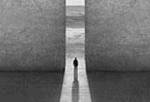I’m 35 pages from the end of The Shadow Rising and tomorrow I start right away with another “epic”: The Man Without Qualities, Robert Musil.
I’ll read it on the sidelines, the same as I’m reading Parallel Stories by Peter Nadas (another “hefty” 560k volume), so it probably won’t be put on my reading progress tab. I’m also reading the Italian version since I trust more the translation and I know it to be very good.
The Man Without Qualities is unfinished, though. One English version in two volumes out there is 1770 pages, but that includes a bunch of rough sketches and drafts at the end. If counting only the finished to almost-finished part (so including the galley chapters) then it’s around 520k words.
Reading the preface, I was reminded of George R. R. Martin. See if it doesn’t fit perfectly:
The extent to which Musil regarded this novel as experimental was extraordinary. He had begun work on it in earnest in 1924 and was most reluctant when the urging of publishers and worsening external conditions forced him to publish parts of it in 1931 and 1933 (pages 1-1130 in this edition). From his point of view, the entire text ought to have remained “open” from the beginning until it had all been written and he could then revise the text as a whole. He complained that partial publication removed those parts of the novel from the possibility of further alteration, as well as distorting the shape (again, a never defined, “open” shape) he had in mind for the whole work. As it was, in 1938, in less than robust health and apparently apprehensive that he would again be forced into premature publication, he withdrew the first twenty chapters that appear in “From the Posthumous Papers” when they were already set in galleys, in order to rework them still further. These chapters were intended not to conclude the novel but to continue “Into the Millennium.” Like Goethe, Musil had a strange sense of having infinite time stretching out before him in which to complete his task. One is tempted to see in his solitary and stubborn pursuit of his ideal more than a little of Kafka’s Hunger Artist.
Stubborn writers with artistic ideals bigger than life.

